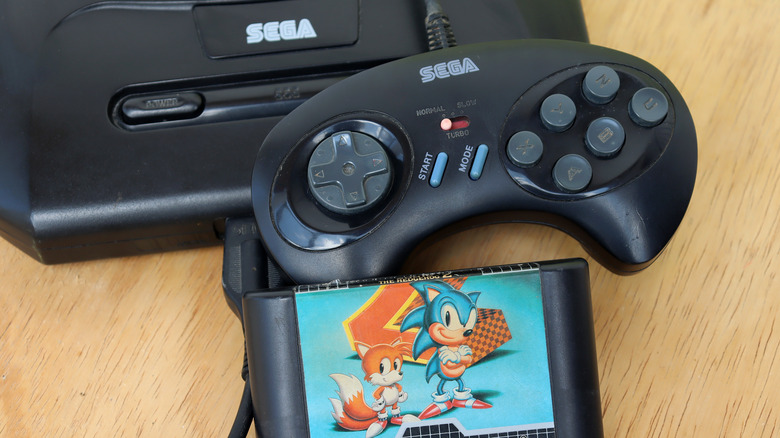Sega Channel Was A Revolutionary Technology Ahead Of Its Time
What if video game streaming was available in the 90s? Well, it's not a hypothetical — it actually was. In 1994, Sega released what was known as the Sega Channel for their Mega Drive/Genesis console. This service was unlike anything that had been released before, closer to what is offered today. The Sega Channel allowed those who paid a subscription to stream games over cable an unlimited amount (via Sega Retro). The games available differed depending on what cable providers would offer. There were also games exclusive to Sega Channel.
The service was released and available at first in many countries, but over time support faltered due to a lack of interest. In the U.S., the Sega Channel lasted for years. It was an innovative idea that long predated the likes of today's game streaming services like PS Now or Stadia.
How did the Sega Channel work?
Genesis owners could opt to subscribe to the Sega Channel if it was available in their country. To do so, they had to purchase a Sega Channel adapter as well as purchase a subscription to a cable provider which offered the Sega Channel in their package. In the U.S., it cost about $12.95 a month with a $25 fee to activate the service, according to Sega Retro. From there, users could choose from a plethora of games to play which were streamed over cable television. The library of games was changed monthly, and newly released games for the system were not available on the Sega Channel until 90 days after their release. Users could, however, pay an additional $2.95 a month to get access to new games for 48 hours. These were known as "Express Games." There were also demo versions of games available known as "Test Drives."
Because of the nature of the Sega Channel, there isn't much available in the way of documentation. Since it was broadcast over cable television, it was difficult to really record the channel at all. However, we can see today how revolutionary the idea was for the time, considering the rise of cloud gaming, an idea extraordinarily similar to the Sega Channel.

